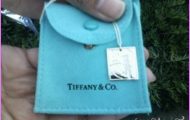Eczema and allergic rashes for child
Eczema or atopic dermatitis is one of the earliest signs of allergy and may appear in the first few weeks of life as rough red patches on the childs face, or rashes and rough patches on the arms and legs. Later on the eczema develops in the creases of the arms and legs. Eczema may be caused by an allergic reaction to substances in the childs diet and is characterised by redness with tiny pin-point blisters. There may be weeping when the blisters break and the area will be itchy. When this dries out the skin becomes scaly and rough. While the tendency to eczema is inherited, it is not contagious and there is no danger of it spreading to others.
Although its exact causes and mechanism are not precisely understood, its symptoms are probably the result of the release of histamine into the surrounding tissues. This causes redness, swelling and the secretion of fluid. It is important to remember that eczema-like symptoms may be caused by a number of conditions and your doctor will have to establish whether it is true eczema before prescribing treatment.
Nappy rashes and other forms of dermatitis should not be confused with eczema which does not commonly occur in the nappy area. The child with eczema is likely to be sensitive to extremes of temperature and should never be overdressed since sweating irritates the condition. Pure cotton or synthetic materials should be used for the baby clothes and blankets, and only pure soap (not the usual household soap powders) should be used for washing the babys clothes and linen.
Because eczema is so itchy the baby is likely to be restless and irritable, making life difficult for everyone. Understanding the childs distress and inability to stop scratching is important to prevent a vicious cycle of recriminations and frustration. Dont cover the childs hands with mittens to stop her scratching but keep her nails short to prevent infection. The parents of a child with eczema need a lot of support from each other as well as their doctor. There is some consolation in the fact that the condition improves in time and waxes and wanes of its own accord so that there are periods of relief, even if only temporary.
Diet Although diet has not been proved to be the cause of all cases of eczema, it is worth trying to establish if the condition improves when certain foodstuffs are eliminated. Cows milk should be the first to go and a substitute milk such as goats milk or one of the vegetable milk preparations (soya) given instead. Other possible allergens such as orange juice, wheat (in cereal or baby foods) and even vitamin drops (the colouring and flavouring used may set off the allergy) should be eliminated. It takes a few days before any improvement is noticed so do not reintroduce the food too soon in the belief that it is harmless. Egg white is a common cause of allergic reaction and you should remember that it may have been used in cakes, ice-cream, baby foods (read labels) and other foodstuffs.
Although smallpox vaccination is no longer required it is vitally important that the child with eczema should not have the vaccination, even if it should be enforced in the future. She should not come into contact with anyone who has had the vaccine and still has the unhealed vaccination. Other immunisations are well tolerated but care must be taken to inform the doctor if the child is allergic to eggs as certain vaccines are cultivated in egg embryos.
Bathing. Although some doctors suggest that the child with eczema should not be bathed at all, others prefer regular bathing with a super-fatted soap (baby soap), and the inclusion of an emulsifying ointment BP (obtainable from chemists) in the water. Dissolve one or two tablespoons of the ointment in a litre of boiling water and mix into the bath water which should be tepid (blood heat).
Linoleic acid deficiency states are known to aggravate dry skin, and it is worth making certain that her diet contains sufficient quantities of it. Linoleic acid (vitamin F) is found in the oil of certain seeds such as linseed, maize and sunflower. Adding one or two teaspoonfuls of sunflower seed oil to the bath water may be beneficial (dont use baby oil). One to 150 parts bicarbonate of soda can also be tried in the bath water if you do not use the oil. Do not use antiseptic soaps or lotions when washing children with eczema. Any creams and ointments should be used with caution since they may contain allergens such as lanolin. It is worth remembering that ointments and creams for nappy rash may themselves contain substances that could irritate the childs skin even if not used on the eczema itself. Oral antihistamines are sometimes useful at night as they make the child drowsy and relieve the itchiness. Any medication for eczema should only be used under a doctors supervision.
Other skin rashes in infancy that have not been diagnosed as eczema and are not associated with a specific illness such as chicken-pox, may be allergic. As a general rule, if there is no temperature and the rash itches but does not change much or develop into a specific disease, it is likely to be caused by something the child comes in contact with, breathes or eats. Pin-pointing the offending substance is not easy, since there may be two or more items that can precipitate the rash. However, it is wise to eliminate the most likely causes.
Maybe You Like Them Too
- 50 Unique Travel Destinations You Must Visit Before You Die
- Tamar Braxton A Life in Music
- Sunny Hostin A Biography
- Steve Coogan A Life in Comedy
- Sterling K Brown A Biography



